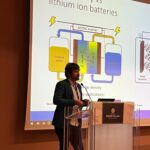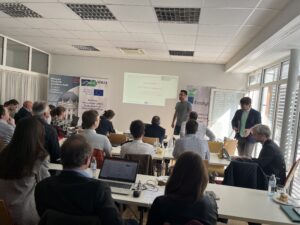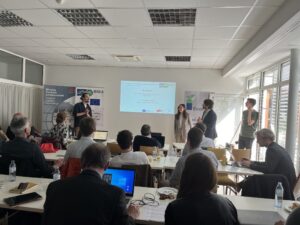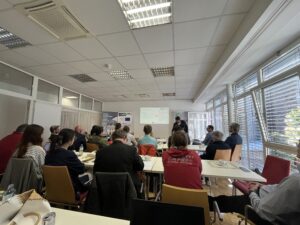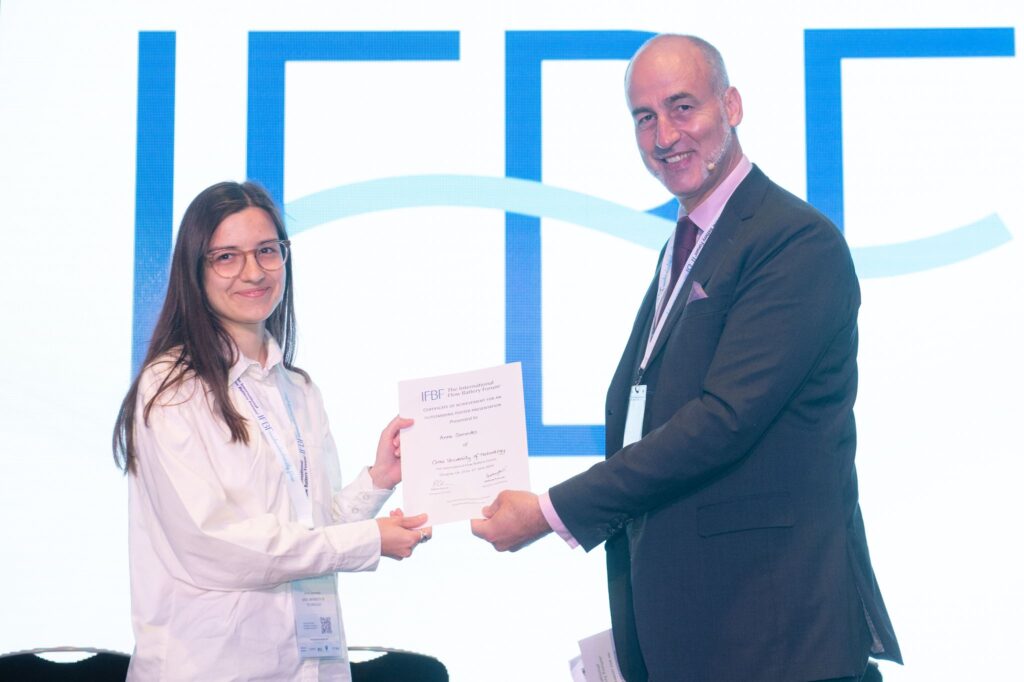
Anna Semenko @ IFBF - International Flow Battery Forum
We are thrilled to announce that Anna has won the ‘Highly Commended’ award for her 1-minute speed pitch at the International Flow Battery Forum (IFBF) in Glasgow!
Congratulations, Anna, on this well-deserved recognition! We are incredibly proud to have you on our team.
Source: IFBF – International Flow Battery Forum (LinkedIn)
Source: Anna Semenko (LinkedIn)
ECOS 2024, Rhodes Greece
VanillaFlow was excited to participate in the 37th ECOS 2024 conference held in Rhodes, Greece, from June 30 to July 5. We proudly showcased our VanillaFlow Project, with Stefan Spirk presenting the workshop:
“VanillaFlow: Advancing Sustainable Energy Storage with AI-Enhanced Flow Battery Technologies.”
We extend our gratitude to the EIC for organizing this exceptional platform for sharing ideas and fostering connections.
Source: ecos2024
General VanillaFlow Meeting 11.4 to 12.4.2024 in Graz, Austria
The General Vanillaflow Meeting was held from April 11 to 12 at the Hotel Gollner in Graz, bringing together 31 participants from the five consortium members.
The two-day event featured productive discussions on individual work packages and a vibrant hackathon focused on stack design.
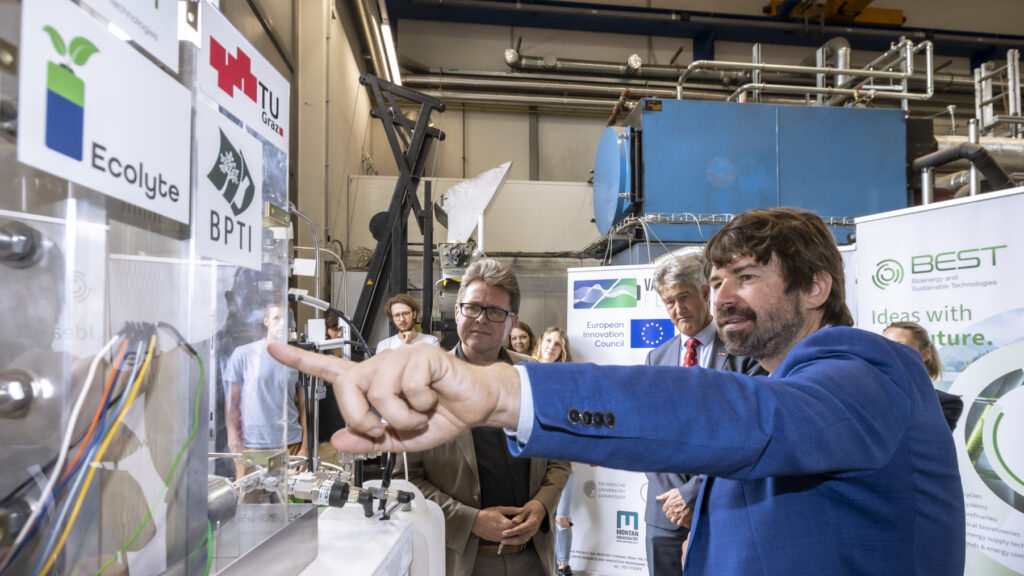
We were honored to host Minister Polaschek (Education, Science and Research) and Rektor Kainz (@tugraz ) who were visiting our VanillaFlow project!
“Martin Polaschek, Federal Minister for Education, Science and Research, has visited Graz University of Technology today. At Campus Inffeldgasse, he got to see the sustainable vanillin electricity storage system developed by the team led by Ulrich Hirn and Stefan Spirk from the Institute of Bioproducts and Paper Technology. Spirk explained to the Minister the operation of the redox flow battery, which is based on the aromatic substance vanillin and does not require any environmentally harmful materials.
“This innovation shows once again: science and research not only create the basis for pioneering technologies, but are also crucial for solving the most pressing challenges of our time, such as climate change or energy scarcity,” Polaschek said during his visit.
Rector Harald Kainz added: “VanillaFlow is a wonderful example of interdisciplinary research and development work that brings together sustainability and entrepreneurial thinking. I am very optimistic that the team around Stefan Spirk and Ulrich Hirn will make a relevant contribution to the decarbonisation of the energy system in the future with the Vanillin electricity storage system”.
Source: TU Graz Press Announcement
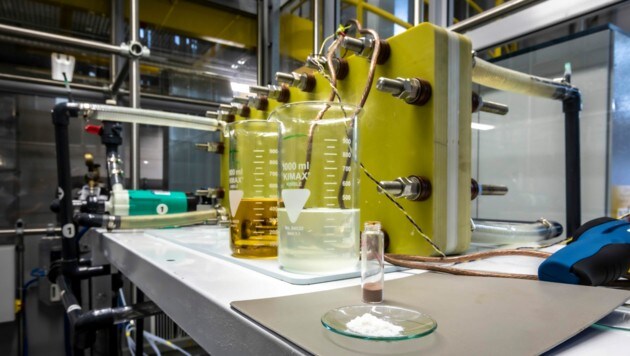
In 2020, Stefan Spirk from the Institute of Bioproducts and Paper Technology at Graz University of Technology (TU Graz) described the research achievement with which he and his team had succeeded as a ‘groundbreaking success in the field of sustainable energy storage technologies’ to make redox flow batteries more environmentally friendly.
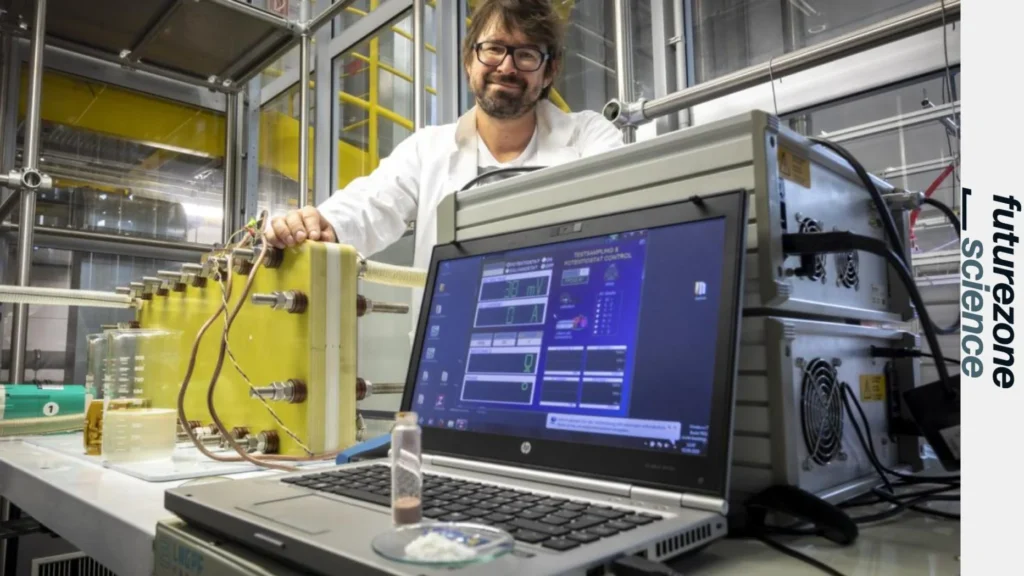
Den blumig-süßen Duft von Vanillin kennt man von Backwaren wie Vanillekipferl oder Eiscreme und anderen Desserts. Manchmal findet der Aromastoff aber auch außergewöhnlichere Anwendungen. Etwa als Elektrolyt-Material für Flüssigbatterien – sogenannte Redox-Flow-Batterien. Diese können große Energiemengen speichern und eignen sich für eine unterbrechungsfreie Energieversorgung, etwa in Spitälern oder Kraftwerken. (FutureZone)

Die Hardware für künftige Stromspeicher wächst möglicherweise schon in den Wäldern – und riecht nach Vanille. Forschende der TU Graz wollen mit Lignin, das ein wesentlicher Bestandteil der Pflanzenwand und zugleich eine elektrochemisch aktive Verbindung ist, die Herstellung nachhaltiger Energiespeicher ermöglichen. Vanillin aus der Papierindustrie und KI spielen dabei eine Rolle. (Kronen Zeitung)

Die Hardware für künftige Stromspeicher wächst möglicherweise schon in den Wäldern – und riecht nach Vanille. Forschende der TU Graz wollen mit Lignin, das ein wesentlicher Bestandteil der Pflanzenwand und zugleich eine elektrochemisch aktive Verbindung ist, die Herstellung nachhaltiger Energiespeicher ermöglichen. Vanillin aus der Papierindustrie spielt dabei eine Rolle, KI auch – und der Europäische Innovationsrat unterstützt das Projekt mit rund 4,6 Millionen Euro. (derstandard)


